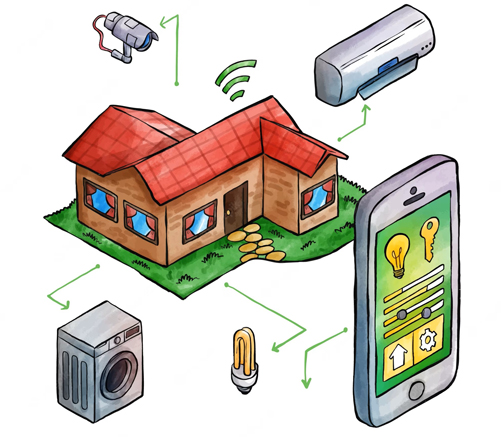Artificial Intelligence (AI) is indeed transforming various sectors of our lives, often without us even realising it. AI technologies are being integrated into numerous industries, revolutionising how we work, communicate, and live. Here are a few examples of how AI is unknowingly changing our lives across different sectors:
- Healthcare: AI has the potential to enhance healthcare services greatly. It can help diagnose diseases more accurately by analysing medical images and patient data, leading to faster and more effective treatments. Machine learning algorithms can also predict disease outbreaks and assist in drug discovery.
- Finance: AI is reshaping the finance industry by automating fraud detection, risk assessment, and algorithmic trading tasks. It enables financial institutions to quickly analyse vast amounts of data, improving decision-making processes and enhancing customer experiences.
- Transportation: AI plays a crucial role in developing autonomous vehicles. Self-driving cars rely on AI algorithms to navigate and make real-time decisions on the road, potentially reducing accidents and improving transportation efficiency. Additionally, AI-powered traffic management systems can optimise traffic flow and reduce congestion.
- E-commerce: AI is transforming the way we shop online. By analysing user behaviour and preferences, AI algorithms can provide personalised recommendations for products or services that match individual interests. It enhances the shopping experience and increases customer satisfaction.
- Education: AI is being integrated into educational platforms to personalise learning experiences for students. Adaptive learning systems can analyse student performance data and tailor educational content accordingly, helping students grasp concepts more effectively.
- Agriculture: AI technologies are used in precision farming to optimise crop production and resource management. Drones equipped with AI algorithms can monitor crops’ health, detect diseases, and identify areas requiring intervention, leading to increased yields and reduced environmental impact.
- Entertainment: AI has impacted the entertainment industry through content recommendations and creation. Streaming platforms use AI algorithms to suggest movies, TV shows, or songs based on users’ viewing or listening history.
In conclusion, the future of AI holds tremendous potential for positive impact across various sectors. As technology progresses, AI can revolutionise industries, improve healthcare outcomes, enhance our daily lives through virtual assistants, and transform transportation systems. However, as with any emerging technology, some challenges and concerns must be addressed. Issues around data privacy, algorithm bias, and ethics need careful consideration to ensure that AI is developed and used responsibly.
Don’t just scroll through your feed – become part of the movement. Like and follow Fight4Right (https://www.facebook.com/Fight4Rightful) on Facebook today!
